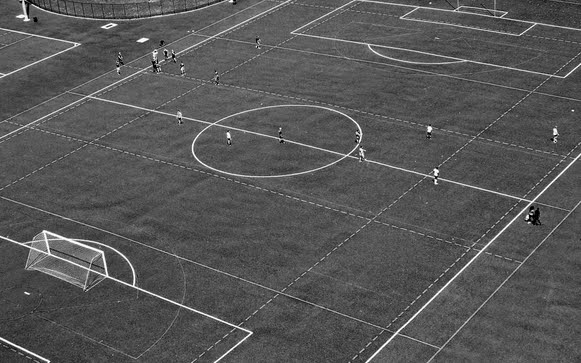NWSL Abuse Shows Bigotry in Sport Hasn’t Gone Anywhere

October 10, 2021 (New York, NY) — Athlete Ally Ambassadors Kaiya McCullough and Mana Shim, along with Shim’s teammate Sinead Farrelly, recently broke the silence on the rampant abuse and discrimination they experienced, illuminating racism, homophobia and sexual violence within the National Women’s Soccer League (NWSL).
These courageous athletes, the many others who reported anonymously, and those who suffer in silence underscore the fact that even in leagues considered more progressive, bigotry and power dynamics have led to player abuse, lasting trauma, and ultimately caused talented players to leave the sport they love. As far as we have come in some ways when it comes to addressing discrimination in sport, it is clear that sport remains a violent, damaging space for many – especially Black and queer players.
McCullough told the Washington Post how her former Washington Spirit head coach Richie Burke repeatedly made racist comments and verbally abused her and other players. “It took the spark and the joy away from me,” she told the Daily Beast.
Shim and Farrelly describe specific incidents in which former coach Paul Riley targeted them for their sexual orientation. When NC Courage player Jaelene Daniels made homophobic remarks in 2018, Riley defended her. And yet as NBC reports, homophobic behavior in coaches goes beyond Paul Riley — Athlete Ally Ambassadors Megan Rapinoe and Ali Krieger have spoken out about Spirit owner Bill Lynch’s homophobia. And this is all just the tip of a gradually emerging iceberg.
“We owe tremendous gratitude to Kaiya, Mana, Sinead and every athlete who is courageously speaking out about abuse in the NWSL,” said Joanna Hoffman, Director of Communications at Athlete Ally. “We also owe it to every athlete, including those who are terrified to speak out, to support the NWSLPA and their demands for accountability and justice. Sport is only at its best when athletes and their well-being are centered, and that clearly is not happening.
Coaches have tremendous power and responsibility. They can create or break a team culture. We need coaches and leaders in sport who reflect the diversity of their players, who listen to and have their players’ best interests at heart, and who model inclusivity, not bigotry and fear.”